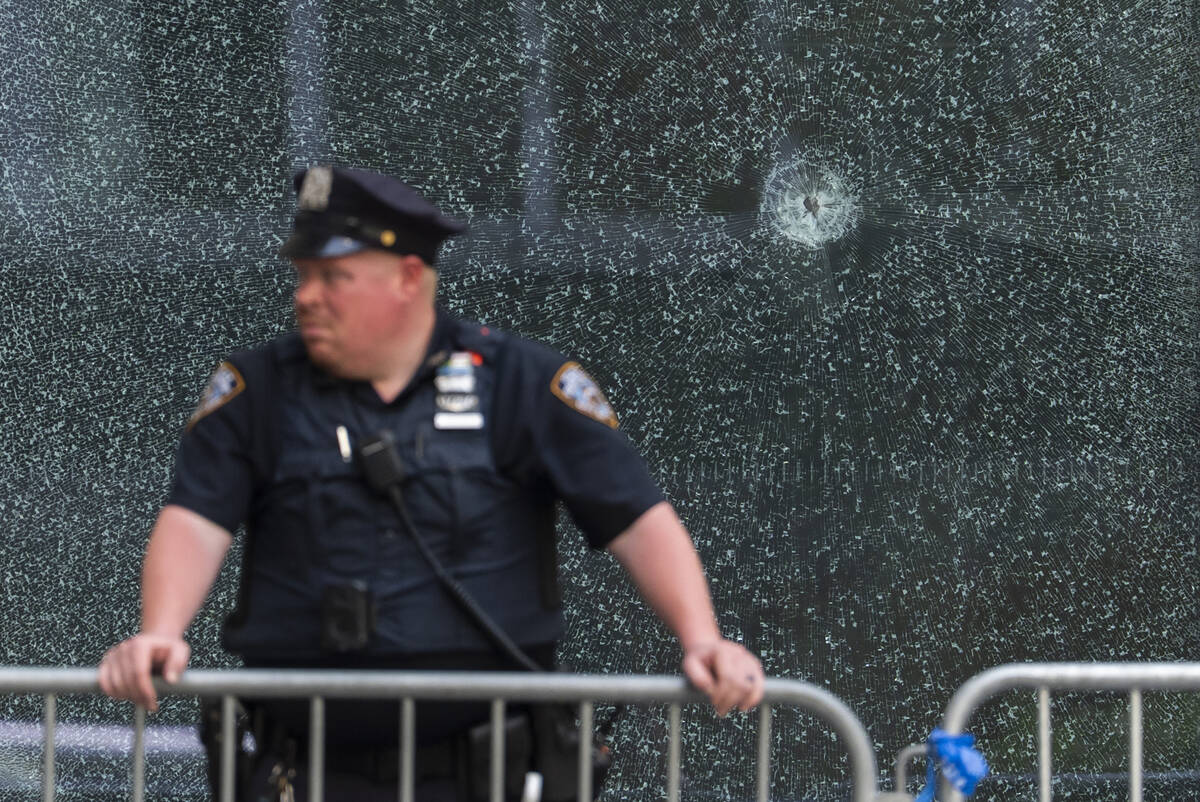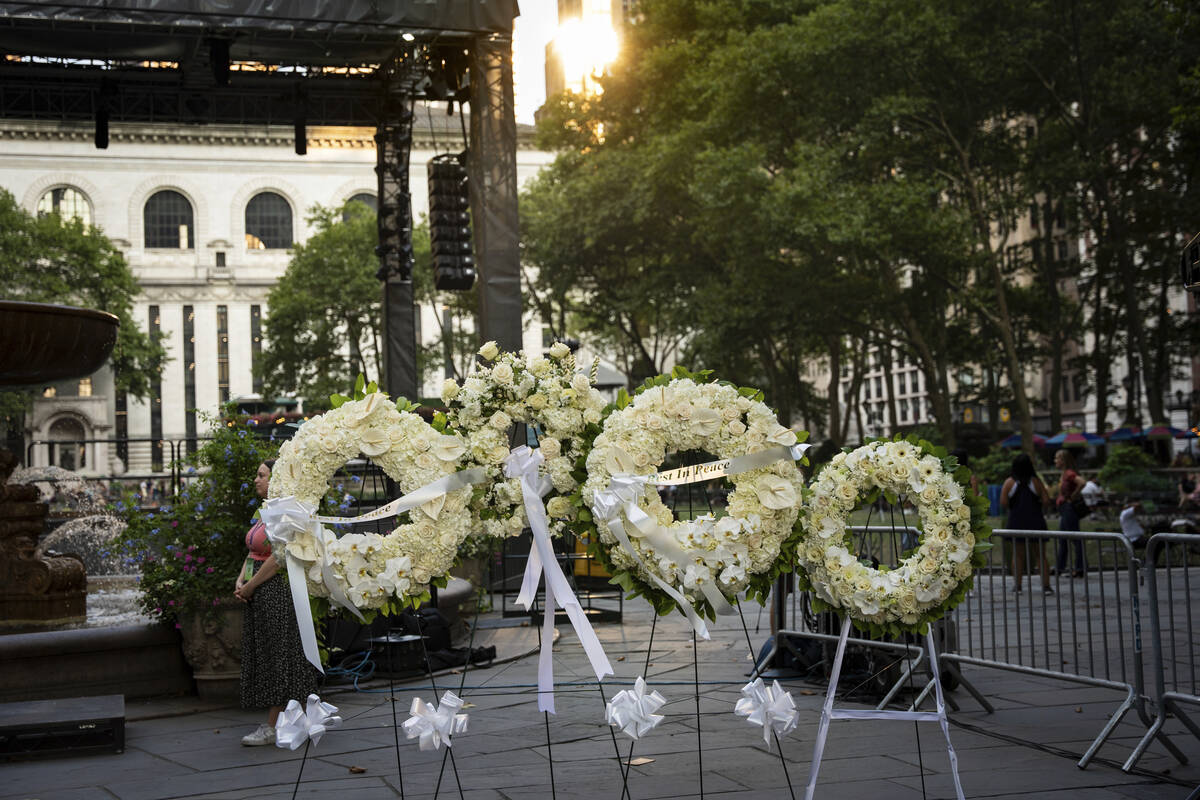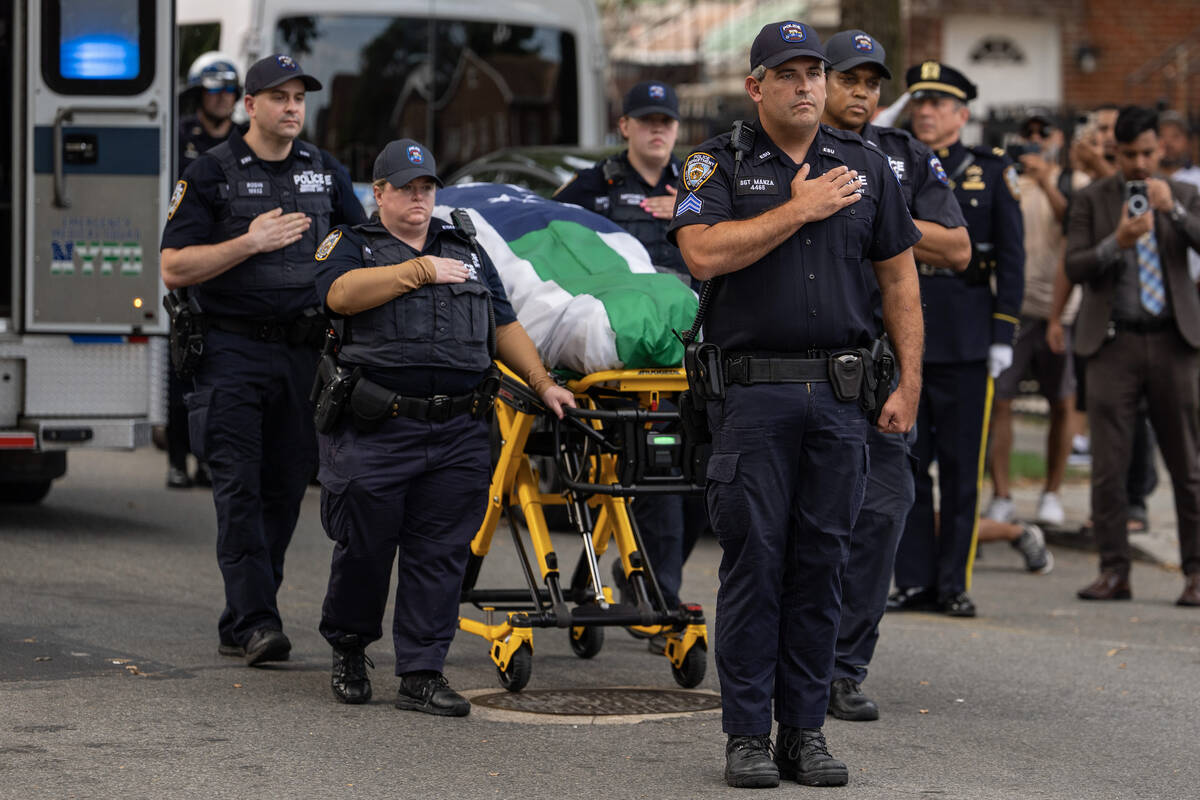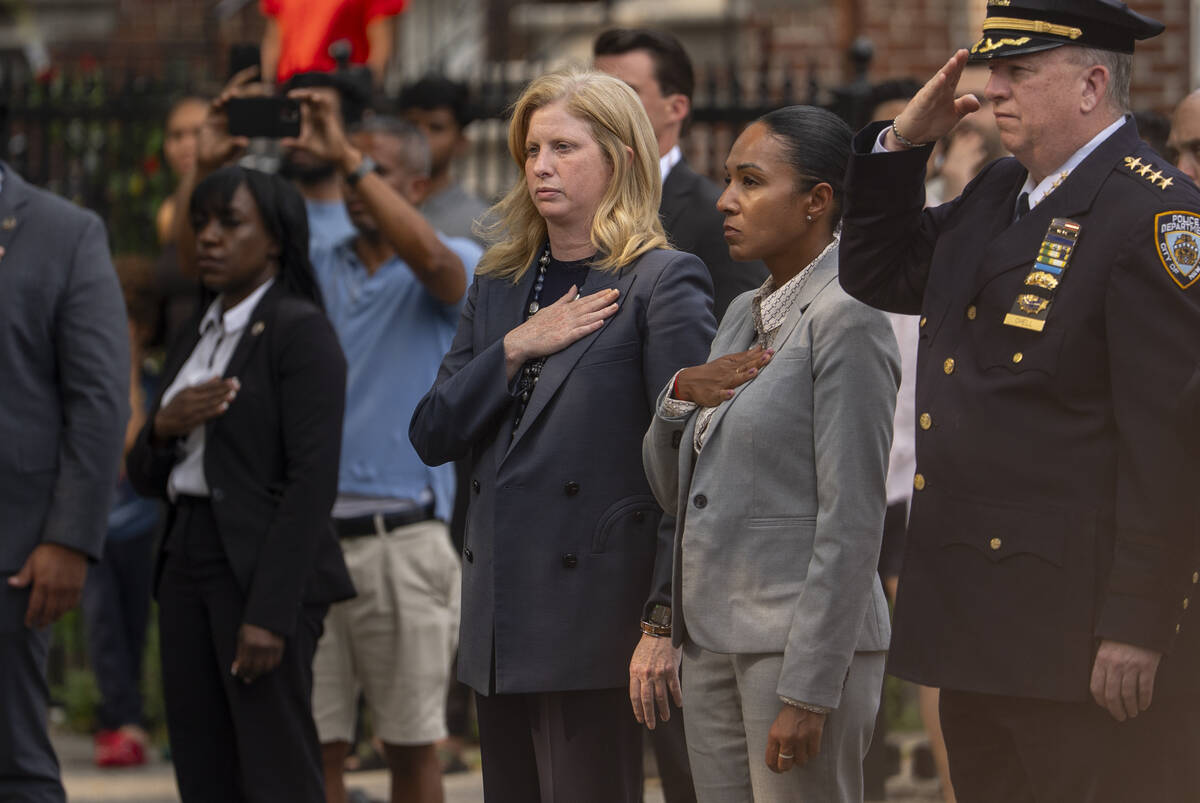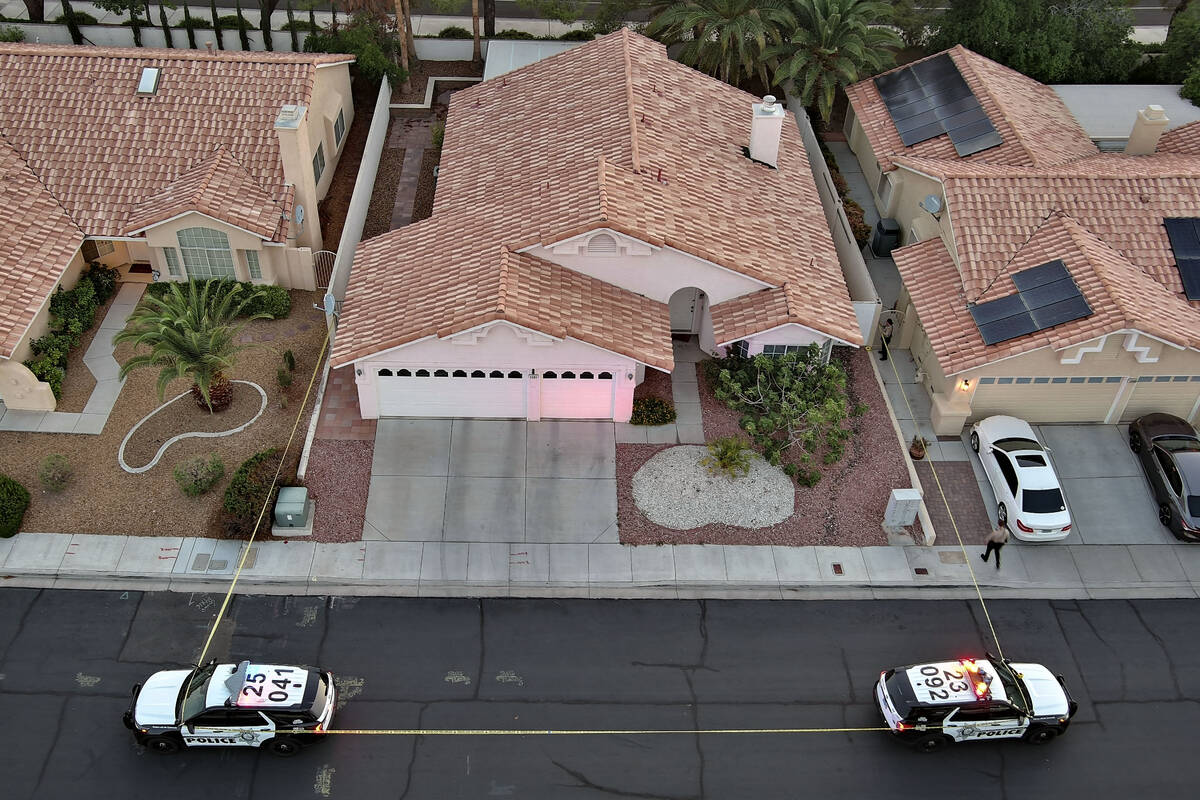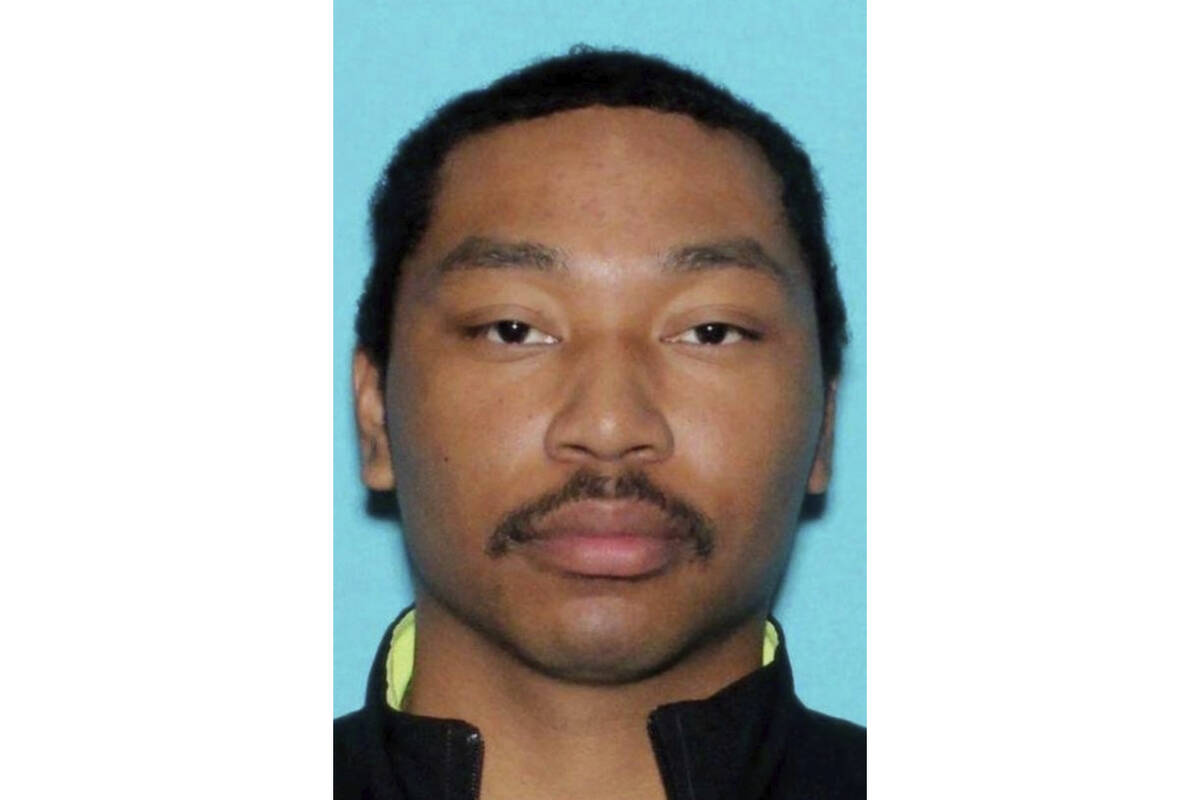California football coach recalls Shane Tamura as ‘just a quiet kid’
Details about Shane Tamura’s life began to emerge Tuesday, the day after the Las Vegas man fatally shot four people in a New York City skyscraper before turning his gun on himself.
The 27-year-old Los Angeles native and high school football star had allowed a private investigator’s license to lapse and had been working as a night security guard at Horseshoe Las Vegas, according to documents and authorities.
He was scheduled to work Sunday night but never showed up.
On Monday, Tamura walked into a prestigious Park Avenue office building in Midtown Manhattan and opened fire.
On Tuesday, investigators with the New York Police Department were in Las Vegas to search Tamura’s Desert Shores home and determine how he came to possess the weapon used in the shooting.
This is what has been learned so far.
‘Coachable’ teen athlete
Tamura was born in Los Angeles, according to public records, and is believed to be the son of a Los Angeles Police Department officer. He grew up in Southern California and gained notoriety as a running back at high schools in Santa Clarita and the San Fernando Valley.
A September 2015 interview with the Los Angeles Daily News shows Tamura, then a high school student at Granada Hills Charter High School in Los Angeles. Tamura is interviewed as the team’s “standout running back.”
Walter Roby, who coached Tamura that year, said he was “in total shock” to hear about Tamura’s actions Monday.
“He was just a quiet kid,” Roby said in an interview with the Los Angeles Times. “He was coachable. If you asked him to do something, he did it with a smile.”
In a statement released Tuesday, the school confirmed that he was “a former student who attended the 2015 Fall Semester and has had no connection with the school since his withdrawal a decade ago.”
The school did not say why he withdrew.
There is no indication that Tamura played football again, either at the junior college or university level.
A note found on Tamura blamed football and the NFL for his perceived struggle with the neurodegenerative disease chronic traumatic encephalopathy (CTE).
“He also writes, ‘Study my brain,’” NYPD Commissioner Jessica Tisch said of the suicide note, adding it mentions a 2013 documentary on CTE and former NFL players who had the disease.
Moving to Las Vegas
Public records show Tamura and his family living in Las Vegas beginning in 2022. He appeared to live in the Desert Shores community in the northwest Las Vegas Valley.
Metropolitan Police Department officers cordoned off the gated neighborhood for several hours after the shooting Monday. A woman at Tamura’s residence offered no comment that night.
While in Las Vegas, Tamura had two documented run-ins with police. He was arrested for trespassing at Red Rock Resort in September 2023, but the Clark County district attorney’s office declined to prosecute the case. In August 2024, he pleaded guilty to operating an expired or unregistered vehicle.
Citing an unnamed law enforcement official, CNN reported that Tamura was placed on a psychiatric hold in 2022 and in 2024.
Tamura began working in security-related jobs during his time in Southern Nevada.
He applied for and received a private investigator license in December 2019. The license expired in December 2024. He was issued a concealed carry permit from the Metropolitan Police Department in June 2022, according to a photo shared by national news outlets.
Most recently, Tamura worked in the surveillance department at Horseshoe Las Vegas on the Strip. A company official said the Horseshoe is cooperating with law enforcement.
Tamura was scheduled to work a Sunday night shift but did not show up, according to Tisch. At that time, Tamura was somewhere between Colorado and the East Coast, on a journey that led him to 345 Park Ave. in Manhattan.
Questions remain
In a Tuesday update, Tisch said two groups of NYPD detectives are going to Las Vegas to conduct interviews and execute a search warrant at Tamura’s house. They also plan to visit where he legally purchased a revolver on June 12 using his Nevada concealed carry permit.
Tisch said Tamura used an AR-15 style semiautomatic rifle that he assembled using a lower receiver purchased by an associate. Detectives plan to question that person and others, she said. On Monday, Tisch described the firearm as an M-4 rifle, which is a military grade carbine capable of fully automatic or burst fire.
Whether Tamura had CTE may take longer to learn.
The condition is not well understood. CTE can’t be confirmed as a diagnosis until after death, when samples of a patient’s brain can be examined for signs such as shrinkage and certain patterns of plaque build-up, said researcher Brooke Conway Kleven, a post-doctoral fellow for the Department of Brain Health in the UNLV School of Medicine.
In living people, the term Traumatic Encephalopathy Syndrome (TES) is used to describe the clinical signs associated with CTE and the criteria for diagnosis.
Those at high risk for the syndrome include professional athletes who have played contact sports, such as football, as well as military members who have seen combat, Kleven told the Review-Journal on Tuesday.
Their elevated risk results from “substantial exposure to repetitive head impacts,” she said. “The risk changes when someone has had more than 11 to 14 years of football. … Someone who only played high school football does not meet the criteria we would consider for TES.”
However, an individual could have additional risk factors, such as military service, that would meet the criteria, she said.
Symptoms of the syndrome include progressive cognitive impairment as well as “impulsivity and explosive behaviors,” which may include violence, Kleven said.
Kleven is researching CTE and TES as part of a team from UNLV and the Cleveland Clinic Lou Ruvo Center for Brain Health in Las Vegas. The local team also works on studies with researchers at Boston University, including one researcher listed by Tamura in his apparent suicide note, in which he wrote both “Thank you” and “I’m sorry.”
If you’re thinking about suicide, or are worried about a friend or loved one, help is available 24/7 by calling or texting the Lifeline network at 988. Live chat is available at 988lifeline.org. Additionally, the Crisis Text Line is a free, national service available 24/7. Text HOME to 741741.
Contact McKenna Ross at mross@reviewjournal.com. Review-Journal reporters Mary Hynes, Katelyn Newburg, Katie Futterman, Finnegan Belleau and Isaiah Steinberg contributed to this report.




